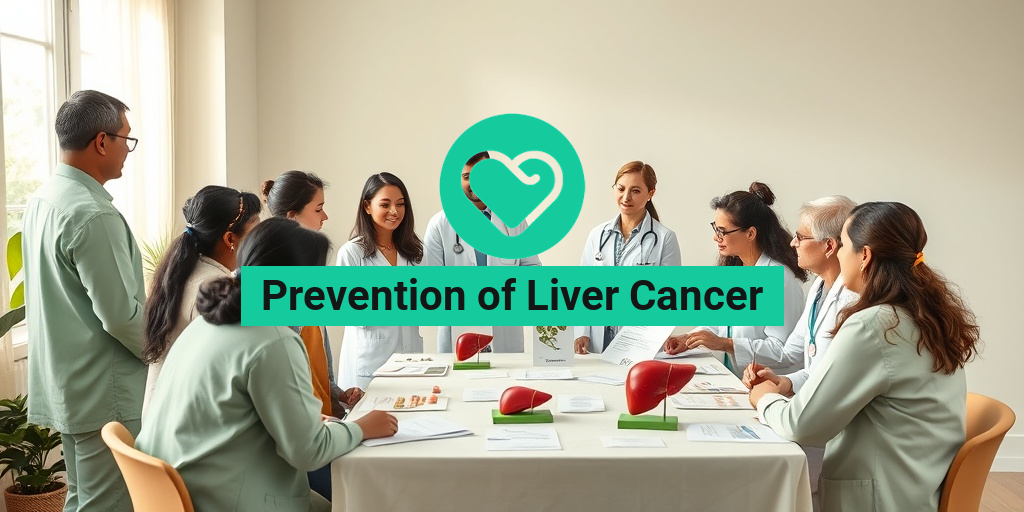What Is Liver Cancer?
Liver cancer, also known as hepatic cancer, is a type of cancer that originates in the liver, one of the body’s vital organs responsible for various functions, including detoxification, protein synthesis, and the production of biochemicals necessary for digestion. The most common form of liver cancer is hepatocellular carcinoma (HCC), which arises from the liver cells (hepatocytes). Understanding liver cancer is crucial for its prevention and early detection.
Types of Liver Cancer
There are several types of liver cancer, but the two primary categories include:
- Primary Liver Cancer: This type starts in the liver itself. The most common form is hepatocellular carcinoma (HCC), but there are also other types like intrahepatic cholangiocarcinoma and hepatoblastoma.
- Secondary Liver Cancer: This occurs when cancer from another part of the body spreads to the liver. Common cancers that metastasize to the liver include colorectal, breast, and lung cancers.
Risk Factors for Liver Cancer
Several factors can increase the risk of developing liver cancer, including:
- Chronic Liver Disease: Conditions such as hepatitis B and C infections, cirrhosis, and fatty liver disease significantly raise the risk.
- Alcohol Consumption: Heavy and prolonged alcohol use can lead to liver damage and increase cancer risk.
- Obesity: Excess body weight is linked to fatty liver disease, which can progress to liver cancer.
- Diabetes: Individuals with diabetes are at a higher risk of developing liver cancer.
Understanding these risk factors is essential for the prevention of liver cancer. By addressing these issues, individuals can significantly reduce their chances of developing this serious disease.
Liver Cancer Symptoms
Recognizing the symptoms of liver cancer early can be crucial for effective treatment. However, in its early stages, liver cancer may not present any noticeable symptoms. As the disease progresses, the following symptoms may appear:
Common Symptoms of Liver Cancer
- Unexplained Weight Loss: Sudden and unexplained weight loss can be a significant indicator of liver cancer.
- Loss of Appetite: A decrease in appetite or feeling full after eating only a small amount can be a symptom.
- Abdominal Pain: Persistent pain in the upper abdomen, especially on the right side, may indicate liver issues.
- Jaundice: Yellowing of the skin and eyes occurs when the liver is unable to process bilirubin effectively.
- Fatigue: Chronic fatigue and weakness are common symptoms that can accompany liver cancer.
- Swelling in the Abdomen: Fluid accumulation in the abdomen (ascites) can occur as the disease progresses.
When to Seek Medical Attention
If you experience any of these symptoms, especially if you have risk factors for liver cancer, it is essential to consult a healthcare professional. Early detection can significantly improve treatment outcomes and survival rates.
Conclusion
Understanding liver cancer, its symptoms, and risk factors is vital for its prevention. By adopting a healthy lifestyle, including a balanced diet, regular exercise, and avoiding excessive alcohol consumption, individuals can take proactive steps to reduce their risk. For more information and resources on liver health and cancer prevention, consider visiting Yesil Health AI, where you can find evidence-based health answers tailored to your needs. Remember, early detection and lifestyle changes can make a significant difference in the fight against liver cancer! 💪
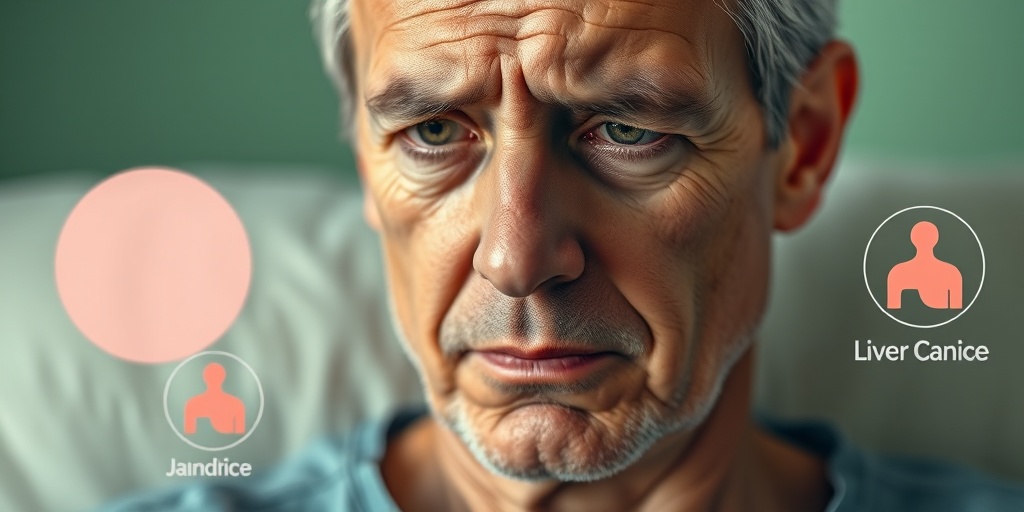
Liver Cancer Risk Factors
Liver cancer is a serious health concern that affects thousands of individuals each year. Understanding the risk factors associated with liver cancer is crucial for its prevention. By identifying these factors, individuals can take proactive steps to reduce their risk and promote better liver health.
1. Chronic Viral Infections
One of the most significant risk factors for liver cancer is chronic infection with hepatitis B virus (HBV) or hepatitis C virus (HCV). These viral infections can lead to liver cirrhosis, which significantly increases the risk of developing liver cancer. Regular screening and vaccination against HBV can help mitigate this risk.
2. Alcohol Consumption
Excessive alcohol consumption is another major contributor to liver cancer. Chronic alcohol abuse can lead to liver damage and cirrhosis, paving the way for cancer development. The link between alcohol consumption and liver cancer is well-established, making moderation essential for liver health. 🍷
3. Obesity and Metabolic Syndrome
Obesity is increasingly recognized as a risk factor for liver cancer. Individuals with metabolic syndrome, which includes conditions like diabetes, high blood pressure, and high cholesterol, are at a higher risk. Maintaining a healthy weight through diet and exercise can significantly reduce this risk.
4. Aflatoxin Exposure
Aflatoxins are toxic compounds produced by certain molds found on crops like peanuts and corn. Long-term exposure to aflatoxins can lead to liver damage and increase the risk of liver cancer. Ensuring proper food storage and handling can help minimize exposure to these harmful substances.
5. Family History and Genetic Factors
A family history of liver cancer can increase an individual’s risk. Genetic predispositions may play a role, making it essential for those with a family history to engage in regular health screenings and discussions with healthcare providers about their risk. 🧬
6. Age and Gender
Liver cancer risk increases with age, particularly in individuals over 55. Additionally, men are more likely than women to develop liver cancer, highlighting the importance of targeted prevention strategies for at-risk populations.
Liver Cancer Causes
Understanding the causes of liver cancer is vital for effective prevention strategies. While some causes are beyond our control, many can be managed through lifestyle choices and medical interventions.
1. Chronic Liver Disease
Chronic liver diseases, such as cirrhosis, are significant contributors to liver cancer. Cirrhosis can result from various factors, including viral hepatitis, alcohol abuse, and non-alcoholic fatty liver disease (NAFLD). Regular monitoring and treatment of chronic liver conditions can help prevent cancer development.
2. Hepatitis Infections
As mentioned earlier, chronic infections with hepatitis B and C are leading causes of liver cancer. These infections can cause long-term liver inflammation and damage, increasing the likelihood of cancer. Vaccination against hepatitis B and antiviral treatments for hepatitis C are crucial preventive measures. 💉
3. Environmental Toxins
Exposure to certain environmental toxins, such as industrial chemicals and pesticides, can increase the risk of liver cancer. Reducing exposure to these harmful substances through proper safety measures and regulations is essential for public health.
4. Diabetes
Individuals with diabetes are at a higher risk of developing liver cancer. The relationship between diabetes and liver cancer is complex, but managing blood sugar levels and maintaining a healthy lifestyle can help mitigate this risk.
5. Smoking
Smoking is a well-known risk factor for various cancers, including liver cancer. The harmful chemicals in tobacco can damage liver cells and contribute to cancer development. Quitting smoking can significantly reduce the risk of liver cancer and improve overall health. 🚭
6. Gender and Ethnicity
Certain ethnic groups, such as Asian and African populations, have a higher prevalence of liver cancer, often due to higher rates of hepatitis infections. Understanding these demographic factors can help tailor prevention efforts and health education initiatives.
By recognizing the risk factors and causes of liver cancer, individuals can take informed steps towards prevention. Regular check-ups, a healthy lifestyle, and awareness of personal risk factors are key components in the fight against liver cancer. 🌟
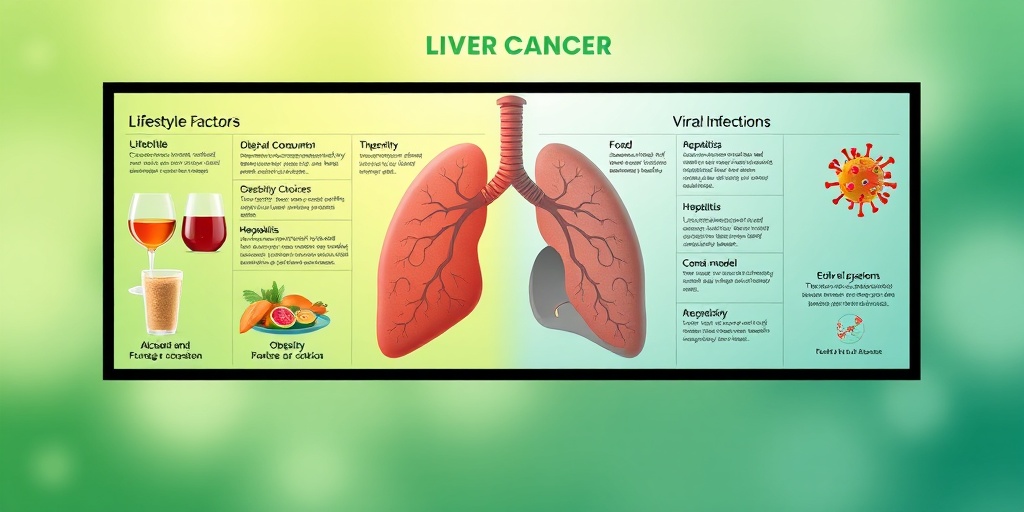
Liver Cancer Diagnosis
Diagnosing liver cancer can be a complex process, often requiring a combination of tests and evaluations. Early detection is crucial for effective treatment and improving survival rates. Here’s a closer look at how liver cancer is diagnosed.
Symptoms to Watch For
Many individuals with liver cancer may not experience symptoms in the early stages. However, as the disease progresses, some common symptoms may include:
- Unexplained weight loss: Losing weight without trying can be a significant indicator.
- Loss of appetite: A sudden decrease in hunger can be concerning.
- Abdominal pain: Discomfort or pain in the upper abdomen may arise.
- Jaundice: Yellowing of the skin and eyes can indicate liver issues.
- Fatigue: Persistent tiredness that doesn’t improve with rest.
Diagnostic Tests
If liver cancer is suspected, healthcare providers will typically recommend several diagnostic tests, including:
- Blood tests: These tests can check for liver function and the presence of tumor markers, such as alpha-fetoprotein (AFP).
- Imaging tests: Techniques like ultrasound, CT scans, and MRIs help visualize the liver and identify any tumors.
- Liver biopsy: In some cases, a small sample of liver tissue may be taken to confirm the presence of cancer cells.
Staging of Liver Cancer
Once diagnosed, liver cancer is staged to determine the extent of the disease. Staging helps guide treatment options and predict outcomes. The most common staging systems include:
- TNM system: This system assesses the size of the tumor (T), whether cancer has spread to nearby lymph nodes (N), and whether there are distant metastases (M).
- Barcelona Clinic Liver Cancer (BCLC) staging: This system categorizes liver cancer into stages based on tumor characteristics, liver function, and the patient’s overall health.
Liver Cancer Treatment Options
Once liver cancer is diagnosed and staged, a variety of treatment options may be considered. The choice of treatment often depends on the stage of cancer, the patient’s overall health, and liver function. Here are the primary treatment modalities:
Surgical Treatments
Surgery is often the most effective treatment for liver cancer, especially in its early stages. The main surgical options include:
- Liver resection: This involves removing the tumor along with a margin of healthy liver tissue. It is typically suitable for patients with a single tumor and good liver function.
- Liver transplant: In cases where the cancer is confined to the liver and the patient meets specific criteria, a liver transplant may be an option. This involves replacing the diseased liver with a healthy one from a donor.
Non-Surgical Treatments
For patients who are not candidates for surgery, several non-surgical treatment options are available:
- Ablation therapies: Techniques such as radiofrequency ablation (RFA) or microwave ablation destroy cancer cells using heat.
- Transarterial chemoembolization (TACE): This procedure delivers chemotherapy directly to the tumor while blocking its blood supply.
- Systemic therapies: Targeted therapies and immunotherapies can help manage advanced liver cancer by attacking cancer cells or boosting the immune response.
Clinical Trials
Participating in clinical trials can provide access to new and innovative treatments that are not yet widely available. These trials often focus on developing new drugs or treatment combinations that may improve outcomes for liver cancer patients.
Supportive Care
Regardless of the treatment approach, supportive care is essential. This includes managing symptoms, addressing nutritional needs, and providing psychological support to help patients cope with the emotional aspects of a cancer diagnosis.
In conclusion, the prevention of liver cancer is a multifaceted approach that includes awareness of risk factors, early diagnosis, and a variety of treatment options tailored to individual needs. By understanding the diagnosis and treatment landscape, patients and their families can make informed decisions about their health. 🌟
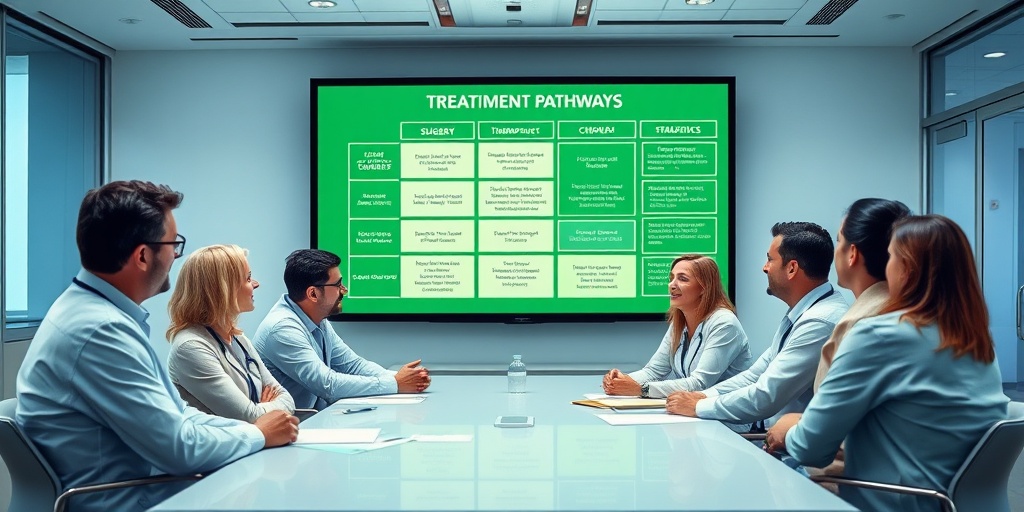
Liver Health Tips
The liver is one of the most vital organs in our body, playing a crucial role in detoxification, metabolism, and digestion. Maintaining liver health is essential not only for overall well-being but also for the prevention of liver cancer. Here are some effective tips to keep your liver in top shape:
1. Maintain a Healthy Weight
Obesity is a significant risk factor for liver disease and can increase the likelihood of developing liver cancer. Aim for a balanced diet rich in fruits, vegetables, whole grains, and lean proteins. Regular physical activity can help you achieve and maintain a healthy weight. 🏋️♂️
2. Limit Alcohol Consumption
Excessive alcohol intake can lead to liver damage and increase the risk of liver cancer. If you choose to drink, do so in moderation. For men, this means up to two drinks per day, and for women, up to one drink per day. 🍷
3. Eat a Liver-Friendly Diet
Incorporate foods that promote liver health into your diet. Some beneficial foods include:
- Leafy Greens: Spinach, kale, and other greens help detoxify the liver.
- Cruciferous Vegetables: Broccoli and Brussels sprouts can enhance liver function.
- Fatty Fish: Rich in omega-3 fatty acids, fish like salmon can reduce liver fat levels.
- Garlic: Contains compounds that activate liver enzymes responsible for flushing out toxins.
4. Stay Hydrated
Drinking plenty of water is essential for liver health. It helps the liver flush out toxins and supports overall bodily functions. Aim for at least 8 glasses of water a day. 💧
5. Avoid Toxins
Limit exposure to harmful chemicals found in cleaning products, pesticides, and industrial chemicals. Whenever possible, opt for natural alternatives to reduce the burden on your liver.
6. Get Vaccinated
Vaccination against hepatitis A and B can significantly reduce the risk of liver disease and cancer. Consult your healthcare provider about the appropriate vaccines for you. 💉
7. Regular Health Check-ups
Routine check-ups can help detect liver issues early. Blood tests can assess liver function and identify any potential problems before they escalate. Early detection is key in the prevention of liver cancer.
Liver Cancer Prevention Strategies
Preventing liver cancer involves a combination of lifestyle choices and medical interventions. Here are some effective strategies to consider:
1. Primary Prevention: Lifestyle Modifications
Making healthy lifestyle choices is the first line of defense against liver cancer. This includes maintaining a balanced diet, exercising regularly, and avoiding harmful substances like tobacco and excessive alcohol. These changes can significantly lower your risk. 🌱
2. Secondary Prevention: Regular Screening
If you are at high risk for liver cancer, such as those with chronic hepatitis or cirrhosis, regular screening is crucial. Ultrasounds and blood tests can help detect liver cancer early when it is most treatable. Early intervention can save lives.
3. Tertiary Prevention: Managing Existing Conditions
For individuals with existing liver disease, managing the condition is vital. This may involve medication, lifestyle changes, and regular monitoring by a healthcare professional. Proper management can prevent the progression of liver disease and reduce the risk of cancer.
4. Consider Vaccination
As mentioned earlier, vaccines for hepatitis B can significantly reduce the risk of liver cancer. If you are at risk, discuss vaccination options with your healthcare provider. 🛡️
5. Stay Informed About New Research
Stay updated on the latest research regarding liver cancer prevention. New studies may provide insights into effective prevention strategies, including potential vaccines and treatments. Knowledge is power when it comes to health! 📚
6. Limit Exposure to Aflatoxins
Aflatoxins are toxic compounds produced by certain molds that can contaminate food, particularly grains and nuts. Reducing exposure to these toxins can lower the risk of liver cancer. Ensure that your food is stored properly and check for any signs of mold. 🍞
7. Seek Professional Guidance
If you have concerns about liver health or cancer prevention, consult a healthcare professional. They can provide personalized advice based on your health history and risk factors.
By implementing these liver health tips and prevention strategies, you can take proactive steps toward reducing your risk of liver cancer and promoting overall well-being. Remember, your liver health is in your hands! 💪
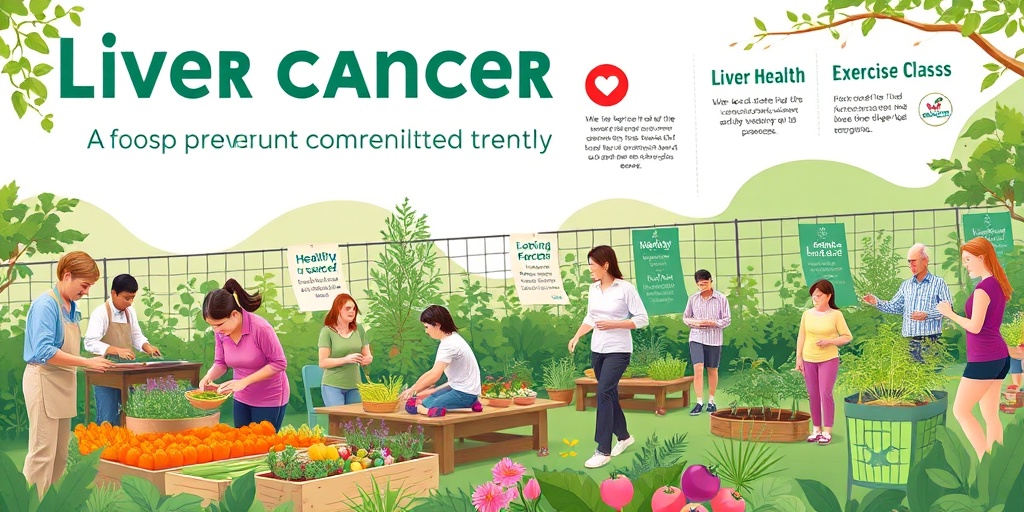
Frequently Asked Questions about the Prevention of Liver Cancer
What are the primary prevention strategies for liver cancer?
Primary prevention of liver cancer focuses on reducing risk factors before the disease develops. Key strategies include:
- Vaccination against hepatitis B virus (HBV).
- Limiting alcohol consumption to reduce liver damage.
- Maintaining a healthy weight through diet and exercise.
- Avoiding exposure to aflatoxins, which can be found in contaminated food.
Can liver cancer be prevented through diet?
Yes, a prevent liver cancer diet can significantly lower the risk. Incorporating foods rich in antioxidants, such as fruits and vegetables, and healthy fats, like those found in fish and nuts, can support liver health. Additionally, reducing processed foods and sugars is beneficial.
What is secondary prevention of liver cancer?
Secondary prevention involves early detection and treatment of liver cancer to improve outcomes. This can include:
- Regular screening for individuals at high risk, such as those with chronic hepatitis or cirrhosis.
- Monitoring liver function and imaging tests to catch any abnormalities early.
Are there any vaccines for the prevention of liver cancer?
Currently, the vaccine for prevention of liver cancer primarily targets hepatitis B, which is a significant risk factor for developing liver cancer. Vaccination can help prevent HBV infection and subsequently reduce the risk of liver cancer.
What are the causes of liver cancer and how can they be prevented?
The main causes of liver cancer include chronic viral infections (hepatitis B and C), excessive alcohol consumption, and obesity. Preventative measures include:
- Getting vaccinated against hepatitis B.
- Limiting alcohol intake.
- Maintaining a healthy weight through diet and exercise.
What is tertiary prevention of liver cancer?
Tertiary prevention focuses on managing and reducing complications in individuals already diagnosed with liver cancer. This can involve:
- Regular follow-up care and monitoring.
- Supportive therapies to manage symptoms and improve quality of life.
- Access to clinical trials for advanced treatment options.
Is there a link between alcohol consumption and liver cancer?
Yes, alcohol is a known risk factor for liver cancer. It is considered the 3rd-leading preventable cause of cancer in the US. Reducing alcohol intake can significantly lower the risk of developing liver cancer.
What are the signs and symptoms of liver cancer?
Early-stage liver cancer may not present noticeable symptoms. However, as the disease progresses, symptoms may include:
- Unexplained weight loss.
- Loss of appetite.
- Abdominal pain or swelling.
- Fatigue.
- Jaundice (yellowing of the skin and eyes).
How can I support someone with liver cancer?
Supporting someone with liver cancer involves emotional support, helping with daily tasks, and encouraging them to seek medical advice. Being there to listen and providing companionship can make a significant difference in their journey. 💖

